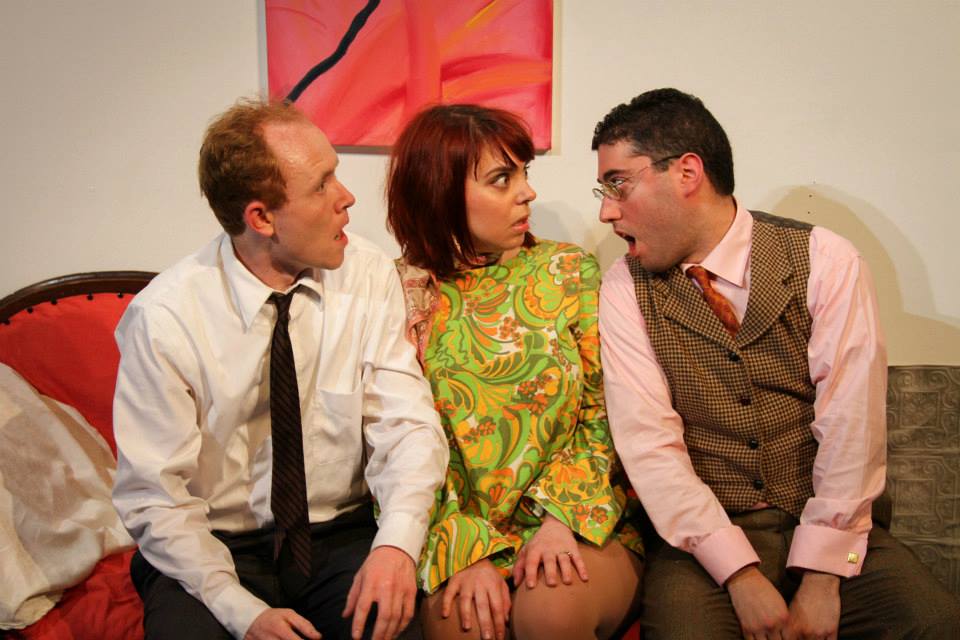presented by Happy Medium Theatre
by Peter Shaffer
Co-Directed by Lizette M. Morris and Michael Underhill
@ The Factory Theatre
Boston, MA
June 14th – June 22nd, 2013
Happy Medium Facebook Page
Review by Craig Idlebrook
(Boston) There is the top, there is going over the top and then there is trampling on the top and spitting on its grave. You have to hand it to the talented Happy Medium cast that performs Black Comedy; they commit to an outrageously loud and brash style that infuses a punk sensibility to a tired and silly British farce. Each actor delivers their lines with such gusto that it’s like being in a room with a guitarist who cranks the amp up to 11. Unfortunately, this loud performance quickly grates, and it’s impossible to emotionally invest in the offensive, obnoxious and one-dimensional characters. The unfunny end product may waste the energetic performances by some talented actors, but at least there’s no danger of falling asleep.
The play centers around the misadventures of sculptor Brindsley Miller (Brooks Reeves), who weaves a web of lies to get on the good side of everyone. He and his fiancée, Carol Melkett (Louise Hamill), steal the neighbor’s furniture to impress her father while also preparing for the world’s richest man to…No, wait… I can’t even write the rest of this plot. It’s just too silly. I mean, porn-plot silly. What matters is there’s a blackout that creates lots of hijinks, and things go from bad to worse to good for Brindsley.
There is almost a Fawlty Towers sensibility to this production, with the two productions sharing a nearly-unlikable character who flails to get out of a trap made by his own deception. And Reeves is the best live actor I’ve seen who can match John Cleese’s ability to make having a very physical mental breakdown fun to watch.
But wise directors hold Reeves back, like a racehorse at the opening turn, to allow him to burst through in the end. Co-directors Lizette M. Morris and Michael Underhill take the opposite approach and allow Reeves to go ballistic in the opening moments. They then call on the rest of the cast to match Reeves in hysterics. We hit the ceiling early and the frantic pace destroys the script’s built-in comedic moments.
It doesn’t help that there is a likability deficit in the characters. The play abounds with pompous and pious scoundrels and schemers, but no one flaunts their faults in a way that makes us care. The play hits its low point with the introduction of the swishy gay next-door neighbor, Harold Gorringe (Mikey Diloreto). It’s bad enough that Harold’s every line drips with either desperate sexual attraction or indignant queenly-ness, but the character simpers so unrelentingly that it approaches the gay equivalent of black-face. This gay character was written for one-tone yucks in 1965, but there were dozens of better ways to approach portraying Harold to get better laughs without leaving the audience feeling so bullied.
It’s possible that I’m just misinterpreting this production, and that its whole point was to be an exercise in purposeful tone-deafness, like with the Velvet Underground. If not, I hope the directors will learn that even bombastic comedy can be done too bombastically.

